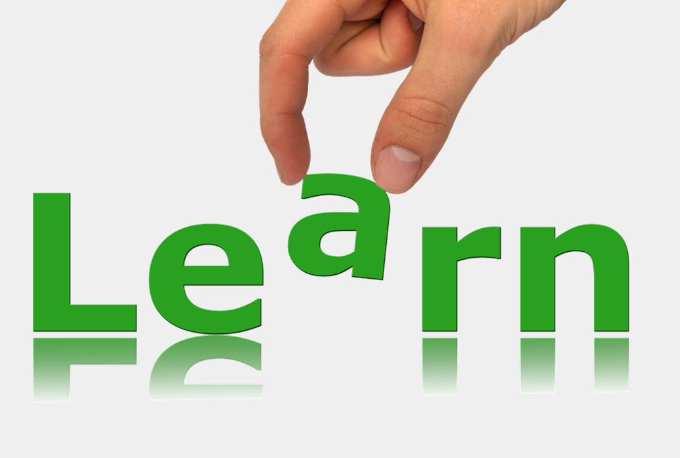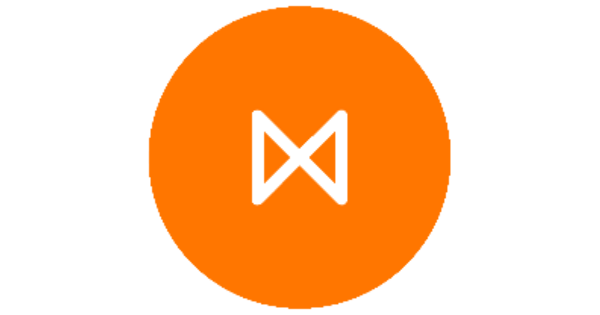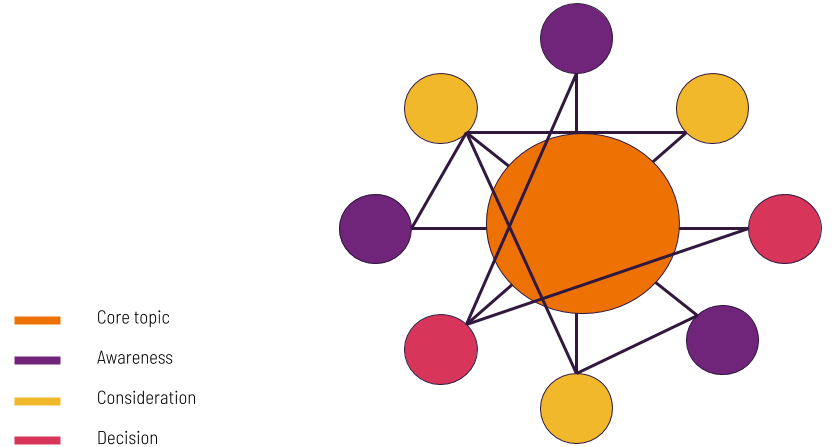Is SEO still the best way to get in front of your customers?
I’m exploring all things SEO today with my special guest and good friend Jon Dawson, the founder of Digital Ninjas, one of Australia’s leading marketing agencies who are on a mission to help for-purpose organisations maximise their results from digital.
So how is Jon going to maximise their results from digital? Good question.
Through SEO – search engine optimization.
Table of Contents
ToggleIn my conversation with Jon we cover a wide range of topics including why it’s so important to be on page 1 of the Google search results, why you should always start with paid before organic and how to increase your organic SEO ranking.
Jon is a true SEO ninja and this episode is a must listen for any business owner starting out with SEO.
So please enjoy this SEO optimized conversation with Jon Dawson.
What you will learn in this episode

- What is SEO and why it’s important for your business
- Why it’s so important to be on page 1 of Google search results
“As the search engines get better at indexing the results and showing the correct information to people, fewer and fewer people go to pages two and three. So if you’re not on page one, particularly the first half of page one, then you’re going to get very little traction from search engines.” - Why Google Ads is the best way to get in front of the customers who are looking for your services and products.
- The differences between SEO (search engine optimization) and SEM (search engine marketing)
- If people search for something, the top two to three results will get 80% of the traffic. Those that are lower down the page get rapidly diminishing returns.
- The challenges of SEO (it’s not actually free! Time=money)
- Why you should always start with paid before organic
- You don’t necessarily have to pull back on your paid search if your organic SEO activity starts to take off
- How to increase your organic SEO ranking
- Important factors that search engines look for on your website
- What are H1 and H2 headings and why they are important
- Changes in SEO over the last 10 years
- Don’t be too concerned with Google Algorithm updates. Just stay focused on quality content and a good experience for your customers.
- How social media effects your SEO rankings
- SEO tools that Jon uses everyday
- When thinking about potential keywords for your business, think about queries and questions as opposed to individual words
- Why it’s important to measure your SEO activity through Google Analytics
- How to formulate your SEO plan if your business is in a competitive niche
- What is remarketing?
Resources mentioned

Google Ads
It takes at least three to six months to see a return on the time and money that you invest in an organic SEO strategy.
If you’re starting with SEO today, create content and create content for your customers. Don’t worry too much about what the search engines want, worry about your customers. That’s the number one thing.
Ahrefs – helps you learn why your competitors rank so high and what you need to do to outrank them
SEMrush – Online Visibility Management Platform
What business would you build on Mars?

Jon Dawson:
Okay, that’s a an interesting question. So I’m the first settler, I think I’d probably go for something in the healthcare space, on the assumption that other people would be following behind me and some of those people would have healthcare needs. So maybe I’d have an integrated service like the GPs available, but also maybe a gym. I could start a gym franchise within there. People need health services wherever they go.
Brendan Hill:
So a maybe like an F45 on Mars.
Jon Dawson:
Yeah, I probably wouldn’t allow F45 to franchise, I’d start my own franchise. But they’re a very good business model. I do like the F45 model.
Reach Jon here
Transcript

Brendan Hill:
And my very special guest today, all the way from Leeds, UK, Jonny Dawson, welcome to the show.
Jon Dawson:
Thanks Brendan. Great to be here.
Brendan Hill:
I’ve known you for a very long time now. One of my oldest digital marketing buddies, and it’s good to have a friend on. Less preparation. But I know you’re going to bring lots of knowledge there and we haven’t had anyone dive into the big bad world of SEO. And I’ll tell you quickly a story about the first time I actually met you. We were working at a company many years ago now, and day one I remember how old CEO came up to our desk and he said, Jon, I need you to get me off page one of Google. He’d done something-
Jon Dawson:
I remember this story.
Brendan Hill:
A bit naughty. Usually you want to be on page one, but can you tell us a bit about why being on page one of Google is so important?
Jon Dawson:
Yeah, of course. As your story attests to, if you’re on page one of Google, you get a lot of attention whether you’re on there for something good or something negative. So the reputation management side of things, which you just mentioned, is something that we do increasing amounts of work in for various reasons, from people who’ve been involved in nasty personal situations to various other issues and helping them delist themselves from some of the search engines. But as a small to medium business or even a big business, the value of being position one on Google or other search engines is huge. It’s all about being in front of the customers who are looking for your services or your products. If you’re at the top when they put their query into the search engine, they’re going to find you first and hopefully come see you first.
Brendan Hill:
And obviously SEO is an important area for all new businesses, but for business owners listening, they might just be entering digital marketing for the first time, what is SEO?
Jon Dawson:
Yeah, it’s a good question, and we get this a lot. Quite often people confuse SEO with what people commonly refer to as SEM, search engine marketing. SEO stands for search engine optimization. It’s the practice of trying to get your site’s rank in position one or as high of the ranking as possible for non-paid results on Google and other search engines. There’s a whole range of different practices involved in getting your business to rank up towards the top of the search results, and I can give you more information on those, but it’s the whole principle of, if people search for something, the top two to three results will get 80% of the traffic. Those that are lower down the page get rapidly diminishing returns.
Jon Dawson:
And increasingly as the search engines get better at indexing the results and showing the correct information to people, fewer and fewer people go to pages two and three. So if you’re not on page one, particularly the first half of page one, then you’re going to get very little traction from search engines these days.
Brendan Hill:
Yeah, I can’t remember the last time I clicked through to page two or three.
Jon Dawson:
No. I do it all the time, but that’s because I work in the industry. Nobody else does.
Brendan Hill:
Can you tell me about the moment where you realized that SEO was going to be so important? When did you first get into the world of SEO?
Jon Dawson:
Very early on, actually. My first role out of university was working for a very small family business in Oldham, just outside Manchester, and they sell commercial refrigeration and air conditioning. It was one of these old school industries where the competition were doing very little in the digital space, so my role then was the general marketing manager, but because of the lack of competition in the digital space, we had a very, very big focus from early on, on doing better in digital, and a big chunk of that was through Google ads. We saw that the quality of leads we got from Google ads was very, very high. They had an exceptional conversion rate when our sales team followed up with them. The challenge with Google ads is you pay for every click. So naturally we’re looking for ways to find the same traffic without that cost attached to it. So SEO was the first consideration.
Jon Dawson:
And I think this is one of the challenges with SEO. So as we dug into it, what we realized is that the SEO isn’t actually free. It takes time and money. Even if you don’t spend money getting a professional to help you, it’s still going to take up quite a big chunk of time to work effectively. But that was my moment of reckoning, when I realized that by being top of the results page for these really relevant queries, we could give customers information they wanted and generate really valuable leads for this small business. So the impact for the business was huge.
Brendan Hill:
You mentioned that SEO isn’t free. So there’s a big debate, I guess, among business owners, whether they should concentrate on SEO, whether they should go straight to paid advertising, the SEM that you just mentioned at the beginning of the episode. Yeah, I mean we’ve had a lot of people on the podcast, a lot of marketing leaders that say SEO and the organic way of marketing your company it’s the only sort of scalable channel for continued growth. Is there a mix between paid and organic, and how do people decide what’s best for them?
Jon Dawson:
Yeah, it’s a good question. I would always recommend that people start with paid, and there’s a couple of reasons for that. The main one is the SEO is definitely a longer term strategy. It will take you, from the point that you go, “We want to focus on SEO, we want to rank well organically,” it will take you at least three to six months to see a return on the time and money that you invest in that practice. Whereas paid search is immediate. But the other benefit of paid search is that it gives you a really, really valuable supply of data on what people are actually looking for. You can get a feel for what people are searching for through tools like Google Trends, Google Keyword Research Tool. There’s a whole host of independent keyword research and market research tools out there. But what they won’t tell you is how that traffic performs when it comes to your site.
Jon Dawson:
So ultimately you could spend six months optimizing for a keyword that doesn’t deliver the right sort of traffic for your business. So it’s really important, I think, to invest in paid even if it’s only for a few weeks beforehand so you get a feel for how that traffic performs when it comes to your site. Because ultimately SEO is all about delivering information to people, and if you’re not delivering the right information to the right audience, you’re not going to get the right type of customers feel business.
Brendan Hill:
Have you got an example of one of your clients that has gone out and done this approach and the results that they’ve seen from that?
Jon Dawson:
Yeah, we do it with all our clients. Even if they’ve not done paid search, working with us early on, most of them will have tried paid search. And generally why people come to us asking for SEO services is they become frustrated at the level of investment they’re having some in paid search and they want to take a longer term view on their return. We do this in a number of different sectors. There’s a company that operate in the heavy lifting market space that are big globally, and they spend upwards of 50 $60,000 a month on paid search. So they’ve got a major, major focus at the moment on SEO and improving their organic rankings. And it doesn’t mean that they will pull back from paid search, but ultimately they’ll keep that investment in place while it’s generating a good return, and then maybe in the future they could pull back on certain keywords as they reach position one.
Jon Dawson:
But there’s also some evidence to show that if you can be position one organically and paid increases your real estate on the page, increases your visibility as a company, so you can benefit from running both in parallel. And there’s been a number of studies on this that have been run independently of my business and these people have taken data from hundreds if not thousands of organizations and found that being position one in organic and position one in paid can really, really give you incremental returns on your investment.
Brendan Hill:
You mentioned it takes three to six months to see a result from organic SEO. What are the best ways to increase your organic SEO rankings? I know you mentioned that once you have it in place it’s like compound interest. I think Einstein has a quote, “Compound interest is the eighth wonder of the world.” So your organic SEO keeps compounding and you see better and better results. How do we do this?
Jon Dawson:
I think the starting point for SEO, there’s two main areas. There’s one area that’s quite technical and it’s that area where you either need to involve an expert to do an audit of your website, your current website, and give you a bunch of recommendations to get the foundations ready for SEO. So that covers things like the speed of the website, how fast the pages load has become increasingly important, how the page is structured. So if you’ll write in a word document, you might use headings and subheadings, webpages work in much the same way, that you can put H1 and H2 headings. And these are really strong indicators to search engines as to the importance and the type of the content on the page.
Jon Dawson:
The second major bit is content, and content is the probably hardest bit to get right because with the technical bit there’s usually a right or wrong or some interpretation of what is best practices. Whereas with content, this is down to your company’s skill, position itself in a way that customers needs to receive information. Copywriting is a very particular skillset that many business owners either won’t have the time to write good content or they just won’t have the expertise in writing to be able to produce something that’s really readable for their customer base. So this is often the hardest bit, and it’s the bit where I would say if you’re going to start with SEO today, create content and create content for your customers. Don’t worry too much about what the search engines want, worry about your customers. This is the number one thing.
Jon Dawson:
And it’s a big change in the SEO space. It used to be, 10 years ago, 15 years ago when I first started working in the space, you could get to the top of Google for pretty much anything if you did the right things, if you pull the right tricks. Google in particular has got smarter and smarter at recognizing people trying to hack the system and to mislead it into displaying concept that might not be the best quality. The algorithms have got smarter. So if you can produce content that your customers wants to read, that is the number one starting point. If you’ve got the best content on your site but the site isn’t structured perfectly, you can fix that later. It’s going to hold you back a little bit if the structure’s not there, but you can go back and fix the technical aspects later. You can’t fix the technical aspects and suddenly have loads of content. So start building content is a key recommendation I would make for any small business.
Brendan Hill:
And you mentioned the constant algorithm changes by Google. They have some pretty interesting names as well, you got penguin, panda, pigeon, hummingbird. How can we stay on top of these changes… Because I know Google don’t release any official how to documents and no one knows exactly how it works, so what’s the best way for your business to stay on top of this in 2020 and beyond?
Jon Dawson:
Again, I wouldn’t worry too much about the changes in the algorithm releases, and they do have some pretty interesting names as you just alluded to. There’s actually been an update already this year in 2020 that was called something like the January 2020 algorithm update because I think Google is trying to defocus the importance of these updates for SEOs and for businesses. If you stick to the principle that you’re producing content that people need and that it’s useful, you shouldn’t have too much to worry about. Usually the algorithm updates are fixing flaws in the system, why content that isn’t as useful is outranking more useful content. So I wouldn’t worry too much about staying on top of the algorithm updates.
Jon Dawson:
Your SEO partner would be more involved in the detail there. The challenge is you will have people who claim to understand 100% what the algorithm update changed and why it changed it. But as you said, Google don’t release that data. It’s not that transparent and it’s not that transparent for a reason. They’re trying to stop people gaming the system. So it’s really important that you just stay focused on quality content and a good experience for your customers.
Brendan Hill:
That’s Google’s goal at the end of the day is to provide the best user experience for their users.
Jon Dawson:
That’s right, yeah. To answer people’s questions as quickly as possible.
Brendan Hill:
So in terms of answering people’s questions, we had Nick Myers on the podcast in episode three, so he was talking about voice first strategy. So voice searches are taking up a big percentage of Google searches now. We have other trends like mobile first. So I know one of the recent updates to the algorithm was to index mobile sites first. And then we’ve also got video coming into the equation with video SEO. Which one do you want to tackle first?
Jon Dawson:
I’ll talk about mobile, because that’s been really, really big over the past two, three years, and Google now index all websites mobile first. So they look at the content that is rendered to mobile devices, delivered to a mobile device. So from that perspective it’s super important that your website has the same content for mobile users as it does for desktop. You may have slight modifications in the user experience and the way the site behaves to make it easier to use and digest that content on a mobile screen, that’s obviously much smaller. But that’s been a focus for quite some time for Google. I think with the video optimization, again, video’s been around as a format for years. There’s been a lot of back and forth from SEOs on how best to optimize video. Some of the best practice ties into making the content accessible as well. So if you’re producing a video or even a podcast like we’re doing today, make sure you’ve got a transcript of that video on the website alongside it, and that’ll give people using screen readers the ability to listen to the content and it will also make it more crawlable for search engines.
Jon Dawson:
But obviously video services have got things like voice recognition now, but the accuracy of that is still not quite there, so I would always recommend that you transcribe the video and sit it alongside the page. Voice search is a really interesting one. I think to a certain extent it’s been over-hyped, as a lot of these advances have, but it’s still there and it’s not going away. I think the really interesting thing with voice search is that is voice search going to give you a page of results? It’s not going to read out 10 search results. It’s going to give you the top probably one to three results when you voice search. So it still plays into the fact that SEO is going to be really relevant for that space. As to the speed and rate of adoption from users. That’s something that is to be determined. It’s obviously got a good segment of users who are committed to it, but we’ll see where that one goes over the next couple of years. It’s definitely being pushed by all the major hardware manufacturers and software manufacturers.
Brendan Hill:
Yeah, super exciting space. Final question. In this section of the podcast, I wanted to talk about social media and its relation to SEO. Have you worked with many clients that have had a complimentary strategy? How does our social media activity affect our organic SEO?
Jon Dawson:
Yeah, it’s interesting. Social media has been proven to impact rankings. The extent of that impact varies. Google will look at your presence on social media so determine your reputation and authority on certain subjects. But as to the weight of that score in the algorithm, nobody really knows. But what I would say is that any communication strategy, whether it’s social media, whether it’s something that’s more traditional, like a print magazine or a television advert, you should always be thinking about the ways that people will behave after they view that content. And search is one of the primary mechanisms… We know from TV advertising for example, increasing amounts of response these days will happen through search. So rather than picking up the telephone, even if there’s a phone number displayed, people’s first action will be to search and usually it’ll be on a mobile device because they’ll be sat in front of the TV and they’ll be using their mobile phone or maybe a tablet and they’ll go on and search for the thing they’ve just seen.
Brendan Hill:
You’ve mentioned a few tools already in this episode. Google Trends, Google Keyword Planner. What other tools do you use for SEO?
Jon Dawson:
We use a whole bunch. Probably the best one, and I think it ties back to what I think is really important in SEO, because there’s a lot of, to some extent, smoke and mirrors in the space. But the key thing to bear in mind, if your business is investing in SEO, and again either externally or through your own time, just make sure you’re measuring the return and the uplift. So using a tool like Ahrefs or SEMrush can do some of this as well these days. But there’s hundreds of these tools that tracks your rank for certain search terms, but not only that, it will show you where your competitor’s ranked. So you can see movement over time. You can see the volume of those keywords. You can see where your current position on the page is, so if you’re on position six on page one, or if you’re at the bottom of page two, or if you know where to be found, and you can monitor that over time and see if you’re moving in the right direction. This is particularly important if you’re working with somebody external. That company should be reporting to you in a really transparent way where you’re moving on your target keywords and search terms.
Brendan Hill:
Nice, nice. So we’ve covered a lot of different areas so far on SEO, so if we had to give maybe top three tips for small, medium businesses listening at home right now, what would they be?
Jon Dawson:
Yep, top three. So first of all, content. Put yourself in the customer’s shoes. Think about answering the questions that they’re asking. That is the primary role of of SEO, really. If you can do that, then you’re already set up for success. I’ve talked about keywords, but think about queries and think about questions as opposed to individual words. Quite often if you just focus on… If you sell fridges, for example, like the example I used earlier, if you just try and optimize against the search term fridges, it’s not going to give your business results because what sort of fridge are people looking for? There’s no clear intent behind somebody searching for fridge. Are they’re looking for fridge repairs? Are they looking for a beer fridge? Are they looking for a commercial fridge? They want a fridge for their kitchen at home? Who knows? So you need to focus on questions and queries from customers, so make sure you thinking about search terms that are two or three keywords long at least.
Jon Dawson:
That’d probably be number two. So content, number one, thinking about your customers. Number two, thinking about those questions and using some keyword research tools to extrapolate volume of those search terms. And then number three will be the measurement side of things. So at a basic level, using something like Google Analytics to look at your organic traffic volume to your website and see if it trending upwards or downwards. And is it trending upwards on the blog posts that you’re writing or the news articles that you’re publishing? And just getting a feel for where that traffic’s going, and when you get the traffic, is it converting? Is it delivering leads or sales or telephone calls to your business? You can measure all of this stuff through Google Analytics. Make sure you’re doing it.
Brendan Hill:
Nice. Nice. And can you tell me the story of Digital Ninjas, your digital agency that you started? Tell me the story of how that came about and what services you guys offer.
Jon Dawson:
Yeah, sure. So Digital Ninjas, we’ve been going now for six years. My background in the digital space stretches back for 20 years now since my very first job, as I mentioned earlier. Digital Ninjas, we work primarily with two industries, the nonprofit sector, I’ve got a background in that, but also with business to business organizations. So the companies that are selling to other businesses as opposed to selling to consumers. And we help people get more results from digital top line. That’s the best way to summarize it, and sitting underneath that there’s a whole range of services.
Jon Dawson:
Usually start with a client by understanding what it is their business wants to achieve. Is it sales? Is it leads? Is it something else? And then working back to help them measure those results and then looking at ways they can reach the relevant audience. Be it through paid search, be it through SEO, be it through social media. I love it. The search space for me in particular is that I enter the mind of people, so there’s some really interesting behavioral information and almost market research you can get from the stuff people search for. That’s the thing that keeps me really excited about the SEO and SEM space. It’s an eye into the mind of your customer. Back when I first started, I used to use our data set at my own micro sites to promote everything from music festivals to white goods, so all sorts of different things. It was a really, really cool way to find out what it was that people wanted and to help them scratch that itch and answer the question.
Brendan Hill:
Nice. And is there a way to gather that behavioral data and then use that when you’re creating your content?
Jon Dawson:
Definitely, yeah. So again, you’d be using tools like Google Trends and Keyword Research Tool to look at the volumes. I often started when I was… Back in the early days of doing this kind of research, if had an idea, a business idea in my head, I would put it into Google keyword research tool and see if there was an existing demand for this business. So it’s a little bit back to front. It depends on the type of industry you’re doing. If you did something cutting edge and you’re creating a market, these research tools are not going to give you the answers that perhaps you need because people don’t know that it exists. Things like the iPhone, when it was first developed, but going to something that exists already and figuring out your niche and your angle within that market, it can be really, really valuable insight. More so than doing things like focus groups.
Brendan Hill:
You mentioned your long career in SEO as well. We used to work together at UNICEF Australia. So can you tell me how companies in super competitive spaces, how do they first come up with their strategy to differentiate themselves from all their competitors?
Jon Dawson:
Yeah, it’s a good point. In some industries in particular, like financial services, the value of a lead is such that SEO is extremely competitive and extremely difficult. I think the differentiation piece is important. So when you get somebody through to the site, depending on where in the funnel you’re targeting them, and I mean the funnel as in, are they ready to buy, are they ready to make a decision? Are they at the final stages of their research journey? Which is often where people first target. But also if you can reach people higher up the funnel, when they’re just in that general research phase and looking for information, you can establish yourself as a thought leader. You can start talking about the unique aspects of your business that will help people. I think that’s a place to play in, but you need to think about more than just SEO to do that and make it work well as a strategy. You need to pull people back. So things like remarketing and showing banners to people who’ve been to the website and pulling them back in. Your email marketing program can be really effective in these spaces. So there’s lots of different aspects to it. It shouldn’t just be a single minded focus on SEO.
Brendan Hill:
Can you tell us more about remarketing, because I know that you practice remarketing because when I visit your site I get remarketed across every single device I own multiple times a day. So can you tell us what is remarketing and why it is so effective?
Jon Dawson:
Remarketing is super effective. People listening may seen it when they go into a clothing site, for example, you go and add something to your basket, you don’t quite check out, either you got distracted or you change your mind at the last minute and then you get chased around the internet, like you say, by banners. It’s super easy to set up and it is very effective. There’s a few things to bear in mind in terms of best practice, in terms of the number of impressions that you show people after they’re visited. It can become annoying for some people. They keep seeing your brand and they’ve made their mind up that they don’t want to use you just yet. You need to think about impression caps and how long you want to continue remarketing to that audience for after they’ve been to the site. But it can be a very, very powerful tool as part of your mix.
Brendan Hill:
Yeah, for sure. And everything that Jon has mentioned, we will include in the show notes that you guys can find at metigy.com/podcast. So Jon, we’re onto the struggles section of the podcast now. So what is one thing that you wish you were more of an expert in marketing right now?
Jon Dawson:
Oh, there’s so much to it. I never think I know everything. We’ve just talked quite a lot about SEO, but there’s so much more to this space than I know and I’ll never know everything. I think you’ve got to accept that it’s a continual learning, especially in digital marketing where things can change at a moment’s notice. In fact without any notice. People like Facebook and Google, they tend not to give people an advance warning when they’re making changes to the platform. So staying on top of those changes is crucial. But I benefit immensely from working with mentors in other industries. We talked a little bit about television and I have people who are experts in that area who give me the inside line on best practice.
Brendan Hill:
Nice, nice. And you mentioned digital marketing is continued learning. Can you tell us about some of the ways that you learn digital marketing? Are you a big reader, for example, or do you find in a fast moving market potentially books may be out of date as soon as you read them? Or do you read other books for other areas of your business?
Jon Dawson:
When I first started out in the space, I’d already graduated, I’d done a marketing degree that didn’t really touch on digital in too much detail. So I went and did a postgraduate diploma in digital marketing in the UK that at the time was very useful, but it was clear back then, we’re talking what, 18 years ago, maybe, a lot of the content in that diploma was outdated. The good thing about it was that it was a very established player in the digital marketing space. A guy called dad, Dave Chaffey, who runs a website called Digital Marketing Insights, it might be just called Marketing Insights now. And that source of information was always super up to date. So definitely the diploma was a very good foundation. It taught me some of the ways to seek the most up to date information and some of the foundational stuff that actually doesn’t change that often.
Jon Dawson:
But then there’s probably 80% of the stuff that changes all the time. And keeping on top of that, you’ve got to read, and it can be very difficult because there’s so many different sources of information. But some of the blogs I use like Search Engine Land, for example, full of new stories on a daily basis and they are written by a number of different people in the industry. So you get many different perspectives. You don’t always get the right opinion or the right information, but you learn how to interpret it and make your own informed decision on what’s valid and maybe what’s a bit more questionable.
Brendan Hill:
Yeah. Nice. And finally, Jon, you have made it to the abstract questions of the podcast. Very exciting. Question number one, if you could have a billboard that all business owners would see, could have text, visuals, whatever you want on it, where would you put it and what would it say?
Jon Dawson:
Why would I put it? It probably wouldn’t be on or alongside a busy road, because I’ve just come back from four weeks in the UK, and where I live in Northern England, I drive a lot between Leeds and Manchester, it’s where my wife’s family are from, and we drive a lot between that. Along this motorway there’s lorries parks in every other field that you drive past and they’ve all got an advertising hoarding on, but you’re driving past at 70 miles an hour, so a hundred kilometers plus an hour, and it’s not the thing that you should be doing really, is trying to absorb this advertising information. I think from an ethical perspective I’d probably stay away from motorways. I’d put it in a place of probably higher dwell time where people sit around. So maybe somewhere like maybe the new light rail system in Sydney. If I could get something on the side of that, could be interesting.
Brendan Hill:
Pretty slow moving as well, they’d be able to take it in for a while.
Jon Dawson:
Very slow moving. And what would I have on that, content wise? I think it’d be something that of value to small business owners, so maybe it’d be an SEO top 10 starter points that you could go and access. I’d probably make the response device something really, really easy as well. A phone number, an SMS, as opposed to my website just because people usually are a bit quicker to get into that SMS app. It’s a bit more native for people than maybe a web browser where you’ve got to type in a long URL and navigate the pages. You can just send them an SMS relatively quickly. I think it’d be something like that, if there’s an opportunity.
Brendan Hill:
Excellent answer. And Jon, the final question, are you ready for launch?
Jon Dawson:
I’m ready for launch. Are we doing the countdown?
Brendan Hill:
That’s good because you’re on the first flight to Mars with Elon Musk and the first settlers aboard the SpaceX star ship rocket. So what business do you start when you land on Mars and how do you market it to the new Martians?
Jon Dawson:
Okay, that’s a an interesting question. So I’m the first settler, I think I’d probably go for something in the healthcare space, on the assumption that other people would be following behind me and some of those people would have healthcare needs. So maybe I’d have an integrated service like the GPs available, but also maybe a gym. I could start a gym franchise within there. People need health services wherever they go.
Brendan Hill:
So a maybe like an F45 on Mars.
Jon Dawson:
Yeah, I probably wouldn’t allow F45 to franchise, I’d start my own franchise. But they’re a very good business model. I do like the F45 model.
Brendan Hill:
Yeah, you definitely take over Mars, I think. Jon, thank you very much for coming in and dropping all the value to the audience today. Before we wrap up, is there anything you’d like to say and how can people find out more about digital ninjas?
Jon Dawson:
Thank you for having me. It’s been a pleasure. Find out more at digitalninjas.com. And if you want to talk further, go to the contact us section. I’m happy to talk anytime.
Brendan Hill:
Awesome. All of Jon’s SEO tips and stories and resources can be found at metigy.com/podcast. Jon, thanks once again. It’s been fun.
Jon Dawson:
Thank you.









